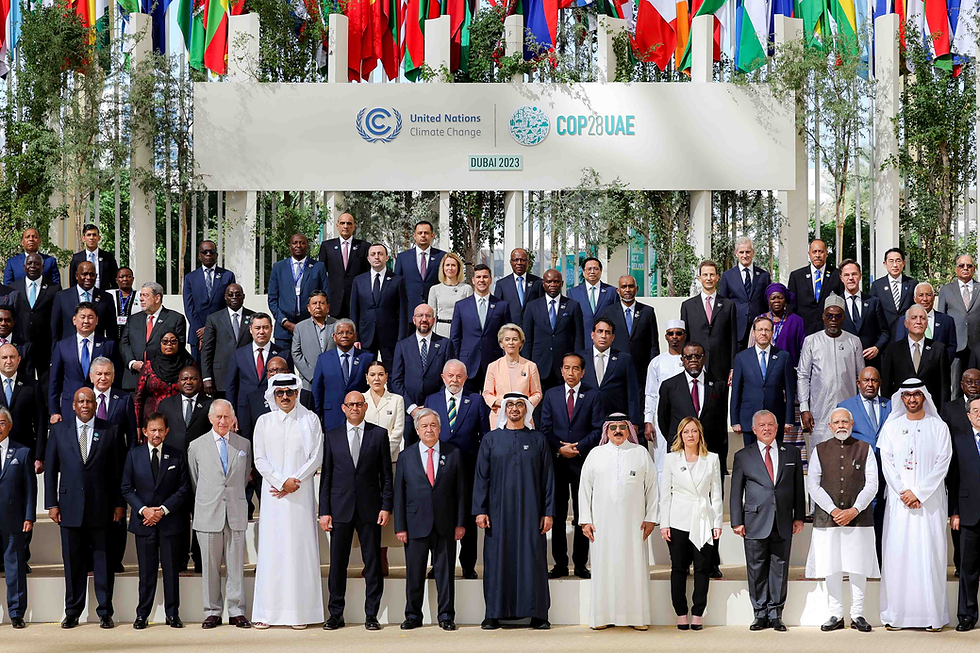Cop28 Historic Accord: Global Shift Away from Fossil Fuels and Unprecedented Climate Commitments
- Flexi Group
- Dec 18, 2023
- 2 min read
The 28th United Nations climate change conference (Cop28) concluded in Dubai with a landmark consensus among negotiators from 197 nations and the European Union. After two weeks of intense negotiations, the 198 parties agreed on a groundbreaking deal that urges nations to "transition away" from fossil fuels, aligning with the Paris Agreement's target of limiting global warming to 1.5 degrees Celsius.
Cop28 President Sultan al-Jaber, also the chief of Abu Dhabi National Oil, emphasized the significance of the agreement, stating, "We have language on fossil fuel in our final agreement for the first time ever." The debate over whether the deal should commit to a global "phase down" or "phase out" of fossil fuels had been a contentious issue during the conference.
Despite concerns from climate activists about the final wording allowing flexibility for continued fossil fuel usage, the consensus reflects a global effort to address climate change. Varied stances were evident, with the European Union, small island nations, and certain Latin American nations advocating for a phased-out approach. Opposing countries included heavily fossil-fuel-dependent economies like India and Indonesia, along with major oil producers like Saudi Arabia.
The United States, the world's largest oil producer, expressed support for "largely" ending the burning of coal, gas, and oil, without specifying a timeframe. China, the largest producer, importer, and consumer of coal, announced plans to "phase down" coal production from 2026.
While Cop28 witnessed intense debates over fossil fuels, it marked the first time a major decision was adopted on the summit's opening day. The conference gathered signatories of the 2015 Paris Agreement, committing to increased actions and funding to mitigate climate change and aid vulnerable nations against extreme weather events.
A unanimous decision was reached to create and fully operationalize a fund to compensate the poorest countries coping with losses and damages from climate change. Approximately US$790 million, primarily from historically responsible wealthy nations, was committed to the fund.
Climate experts, while acknowledging the progress, caution that implementation is crucial. Alex Scott, program lead at climate think tank E3G, stated, "The proof will be in the delivery – in countries’ next climate plans due by 2025, and in the transformation of the wider finance system to deliver the economic shifts needed."
As the journey continues toward Cop30 in Brazil in 2025, experts emphasize that despite existing gaps and loopholes, the direction is clear: the fossil-fuel era is coming to an end. The global community's commitment signals a transformative shift in addressing climate change challenges.
By fLEXI tEAM
.png)
.png)








Comments